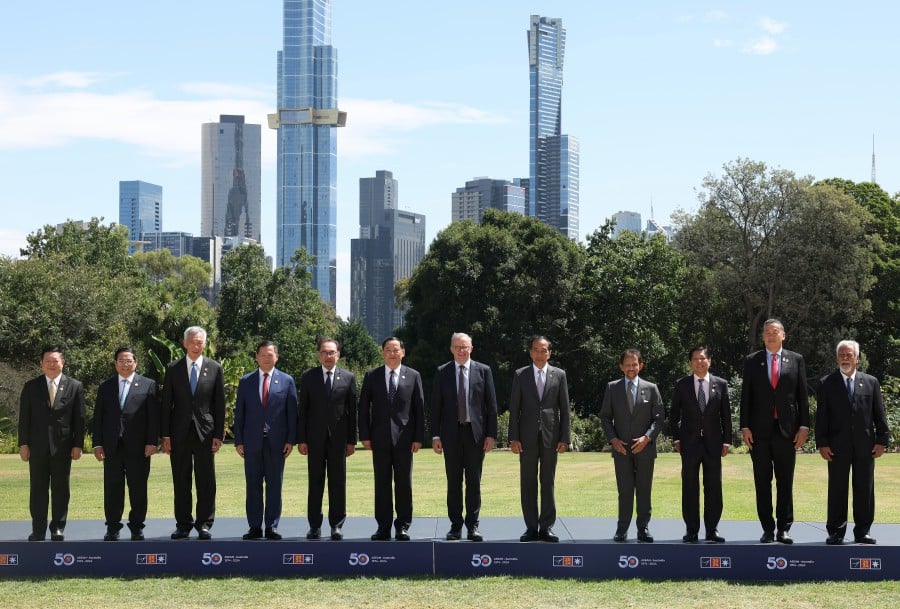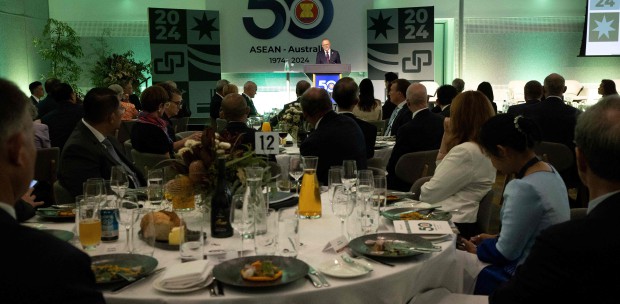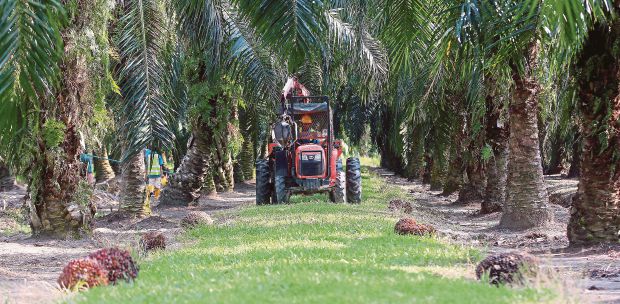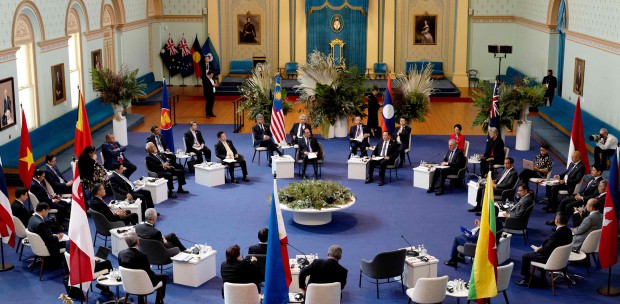THE 50th anniversary of the partnership between Asean and Australia has just concluded, following a three-day Asean-Australia Special Summit in Australia.
On the agenda of this week's summit was discussion of regional partnerships on business, climate, clean energy and maritime cooperation and security. Meetings like these are important for Australia. Australia's prosperity is tied to Asia's success.
Forty per cent of global economic activity is in Asia. By the middle of this century, it will comprise more than half of the global economy. Two-way trade with Asean countries is worth over $100 billion. Asia's middle class will reach 1.7 billion people, larger than that of Europe and North America combined.
As nearly two-thirds of Australia's exports pass through the South China Sea, increasing security interests have featured in our relationship with the region and with Asean. Politically, Australia also has to adapt to Asian and Pacific nations being increasingly vocal in regional and international forums.
Although Asean has a 50-year history it was not until 2015 that the Asean community endorsed three key planks of its development - political, economic and socio-cultural. Yet at this summit and in Australia's other engagements with Asia and Asean, it is the economic and political planks that feature most prominently, not so much the socio-cultural.
The Asean socio-cultural community provides for cooperation among Asean member states on a broad range of issues including culture and arts, education, social welfare and development, the rights of women, poverty eradication and health.
Asean itself has recognised that culture and arts serve as an engine for economic growth and sustainable development, an asset for regional pride as well as a vehicle for forging closer friendships and understanding. Its strategic cultural plan to 2025 promotes the role of culture in Asean becoming a proactive member of the global community.
In other words, you cannot separate economics from culture, least of all in Asia. They go hand in hand even though we may like to treat them separately.
Commenting on the chasm developing between the global north and the global south, in a speech this week in Australia, Malaysian Prime Minister Datuk Seri Anwar Ibrahim said: "There can be no easy and straightforward responses to our present circumstances, for they are immensely complex.
"They are rooted in vexed questions about the rightful place of societies in the world and in history, their dignity, and their livelihoods. It boils down to fundamental questions of values and identity."
Australia's relationship with Asean needs to be firmly rooted in social and cultural ties. Australia needs to embrace the region's diversity and socio-cultural initiatives, not just its economic and security potential.
To achieve closer and stronger cultural ties with Asean, Australia first needs to understand Asean better. As much as we may wish - as it makes engagement easier - Asean is not a regional federation like the European Union. It may never become one. To understand Asean, we need to understand its members.
We know little about the 10 nations (soon to be 11, if Timor Leste is admitted) that comprise Asean. Each of the 10 Asean members has very different histories, language, culture and political system. Some are centralised economies while others are market economies. Like Australia, many were European colonies, with all that entails.
Yet, few Australians have much knowledge of our Asean neighbours, outside perhaps of the tourist destinations of Indonesia (Bali), Thailand, Singapore and Vietnam.
As the 10-year-old Asian White paper indicated, Australia needs to develop Asia-relevant capabilities, including understanding the way business is undertaken in Asian countries. We require relevant cultural skills to operate in different countries and regional language skills that enable us to negotiate and develop personal and business relationships.
Yet research by the Diversity Council and AsiaLink has found that 67 per cent of ASX 200 board members show no evidence of experience operating in Asia and 55 per cent demonstrate little to no knowledge of Asian markets.
One in three Australian workers have very little or no overall Asian capability. The decline in learning Asian languages has also hindered Australia's engagement.
Addressing this means implementing programmes designed to promote Asian capabilities and harnessing the talent of Asian Australians at home. Although Asian Australians comprise a growing proportion of Australian workers, they do not feature as senior leaders in firms, on company boards, within the judiciary or in senior ranks of the bureaucracy.
The United States, Germany and Singapore have programmes designed to tap into the considerable wealth of experience within the Asian diaspora. Australia needs similar programmes.
Australia will also need to review its aid contribution and its mode of delivery to send a clear message about its long-term commitment to Asean. Programmes tied to developing local Asean capabilities (like knowledge transfers) are preferred to those which have short-term aims. They should also have a significant focus on the socio-cultural initiatives of Asean, where its impact is more likely to be felt on the ground, where it matters most.
Australia's stable institutions provide an opportunity for institutional dialogue, to share learnings with emerging Asean nations, particularly the smaller Asean countries that have only recently embarked on the requirements of the Asean economic community.
Appreciating the challenges faced particularly by centralised Asean economies in navigating a market economy is both a step towards understanding and acceptance. It contributes to more targeted Australian responses, for example in education.
Education is already a significant Australian export and an area of enormous capability that is valued within Asean and which Australia can further leverage. The India Economic Strategy Report, which should also serve as a blueprint for Asean, recommends playing to our strengths in education, training, research, and long-term institutional relationships.
The recent Australian Universities Accord report recommends support for tertiary education providers, in partnership with relevant government agencies, to enhance Australian alumni engagement in students' countries and regions of origin.
These initiatives could be pursued in Asean through dedicated centres of excellence with clear governance structures, perhaps in partnership with industry and government.
Two-way trade is important to both Australia and Asean. It can improve lives and livelihoods. Yet to achieve lasting economic goals with Asean, we need a foundation based on a greater understanding of the individual members within Asean.
That understanding will be more meaningful and enduring when it embraces culture, not just trade and security.
The writer is an Australian lawyer, commentator and Adjunct Professor, the Faculty of Law & Justice, University of New South Wales





